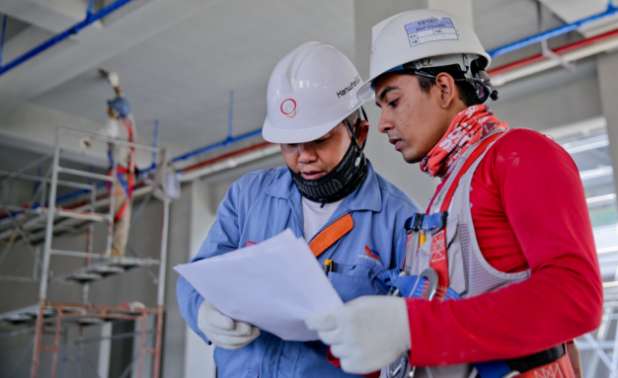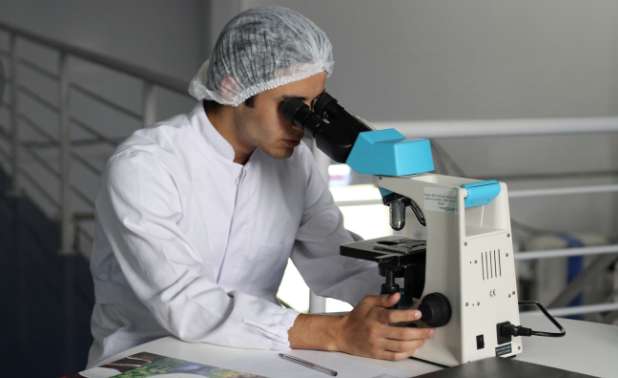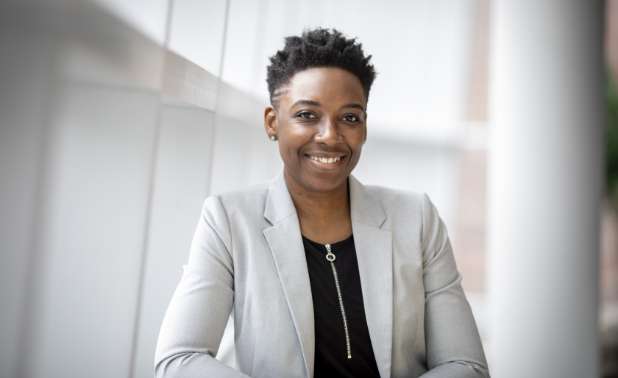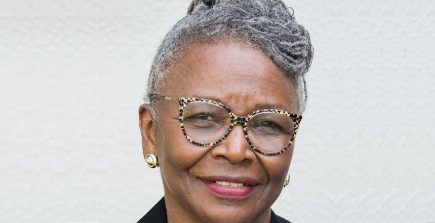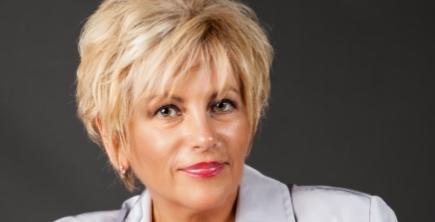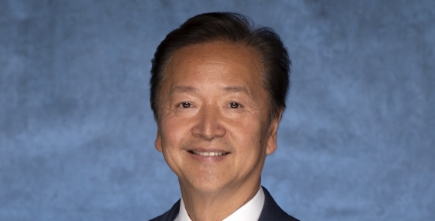Rahdiah Barnes:
Welcome to Pride Global’s first miniseries for But First, People, presented in partnership with the National Minority Supplier Development Council. My name is Rahdiah Barnes, and I’ll be your host. As proud partners of the NMSDC, the entire Pride Global team is thrilled to be bringing you this podcast. We’ll be meeting with other Corporate Plus members and sponsors to learn how being minority-owned companies has shaped their business strategies, the relationship between sponsorship and membership, and much, much more. Join us each month to listen and learn from their stories.
Rahdiah Barnes:
Today, I’m excited to sit down with NMSDC’s director of MBE services, Icy Williams. Icy is a retired P&G executive, small business entrepreneur, owner of Legacy 83 Business, and the director of diversity and wealth inclusion for Canoe Asset Management. An accomplished business professional and diversity leader committed to driving small business development and economic inclusion, she’s also an expert in supply chain development, strategic planning, and employee development. She’s been more than a voice for change in our industry and community—she’s been a driver of real bottom line business results at the same time. Welcome to our podcast, Icy.
Rahdiah Barnes:
Icy, I’m so, so excited to have you as our very first guest for our very first podcast episode. Thank you so, so much for joining us.
Icy Williams:
I’m looking forward to this! This is very exciting. And the Corporate Plus members are very excited about moving forward with this and I believe that this is going to be a great opportunity for them to get the kind of exposure that they have been asking for—for quite a while
Rahdiah Barnes:
Much needed, much needed exposure. It’s a great program. And we’re going to get into the program, but I just want to start at the beginning. So I want to know who Icy Williams is. I feel like you and I have developed a rapport, we’ve been working together over the past couple of months. But I did a little research on you. So I would like to know a little bit more, because you are absolutely extraordinary! I’m so impressed by the little bit that I learned. Let’s just start at the beginning. So Icy, tell me a little bit about your background, where you’re from. I see that you attended Prairie View A&M. I want to know how that experience shaped who you are.
Icy Williams:
Absolutely. Well, starting with a little bit of background about Icy Williams. I grew up in a small town called Fairfield, Texas. Did not—when I graduated from high school, which had been an integrated high school based up off of my senior year. So I left my Black high school and went to an integrated high school in Fairfield, Texas, and graduated from there, with honors. And so when I went off to college, to the historically Black college, I did not have any idea as to how I was going to attend it, just based up off of my economic conditions in growing up—but growing up in a family of 13 with a mom and a dad who really pushed us that education was important.
Icy Williams:
But I was blessed to get a scholarship to go to Prairie View A&M, which is a historically Black college, at that time and got my degree in business education from there. And upon graduation, I went to work for a company in Dallas, Texas, as a matter of fact, as a substitute teacher, because that was what my degree was in. And from there, based up off of my husband’s career, because he was a national football player, he got transferred to Green Bay, Wisconsin. And in Green Bay, I got the opportunity to join a company called Schreiber Foods and Schreiber Food is what launched my career into corporate America in 1981.
Rahdiah Barnes:
Amazing. And I see that you worked at Procter & Gamble for 29 years.
Icy Williams:
Yeah, and so during that period of time being with Schreiber Foods, and then them understanding exactly what was happening and going on and being in Green Bay at that time, Procter was in need of minority-owned employees. And I was able to join up with the Procter & Gamble Company in Green Bay, Wisconsin, and was with them for 29 years through multiple assignments. Started out as a process engineer within the Procter organization, and then moved on; my last year prior to being a supply diversity leader, I was plant manager at one of their facilities in New Jersey for four years, and then transferred back to Cincinnati as the corporate leader of the Supply Diversity Program in 2002. And led the organization through that process, taking them from a spend of roughly about $750 million to $2.3 billion at my retirement in 2010.
Rahdiah Barnes:
Would you look at that, Icy?
Icy Williams:
It was an exciting career being with the Procter & Gamble Company and opportunities that I never would have experienced if I had not been with the organization. A great organization for transformation, as well as growth and development of all of its employees—if they’re willing to take advantage of it.
Rahdiah Barnes:
Well, it seems like you were made for the Supplier Diversity world. You kind of set a blueprint there, but you also owned your own business. And I think you own more than one business, in particular, ATMOS360? That’s a manufacturing company?
Icy Williams:
Absolutely. Yes, I did. At my retirement in 2010, after I joined a minority-owned business and was with that company for about a year and a half before my late husband and I purchased ATMOS360. And ATMOS360 was a filtration company that specialized in dust-control systems. So we fabricated, manufactured products associated with dust mitigation within global manufacturing facilities across the world. And one of my key customers was the Procter & Gamble Company, which—we were really focused on eliminating dust and particulates in these manufacturing organizations so that the people, the employees, had cleaner and fresher air to breathe day in and day out.
Rahdiah Barnes:
Wow, that is so interesting.
Icy Williams:
Yeah, it was a great experience. And then once that business was complete, then I did consulting for small and diverse businesses. And that was when NMSDC saw that I was in that business and asked me to come and do some consulting with them. And from there, it led to a full-time employment with the NMSDC organization.
Rahdiah Barnes:
And here we are. So can you tell me—so the National Minority Supplier Development Council, could you tell me exactly what that is and what their mission is?
Icy Williams:
Absolutely. I’ve been around the National Minority Supply Development Council with the Procter & Gamble Company, let’s say, close to 30 some years. And so certainly, getting into the supply diversity role within the—Procter, it gave me close connections to NMSDC. So NMSDC, or the National Minority Supply Development Council, has been around for 50 years, really advocating for diverse business, but specifically, minority-owned businesses. So, their focus is primarily minority-owned businesses, which really looks at the community of colors, of Asian-Indian, Asian-Pacific, Black, Hispanic, and Native American, and really advocating for those minority-owned businesses, where they certify, develop, connect, and advocate to national and local corporate members for scalability, capability, and growth.
Icy Williams:
And it is amazing to be a part of that organization because they are the cornerstone for certification of minority-owned businesses within the U.S. And they have linkages and connections to international NGOs, just like themselves, to ensure that that certification is recognized and known globally. So the mission of NMSDC really is about—to serve as a growth engine for the NMSDC certified businesses, and to enable the corporations to advance economic equity.
Rahdiah Barnes:
Just what minority businesses need, I believe. I think anything that helps to uplift us, empower us, encourage us, highlight us, is so important. And that’s one of the reasons why I do believe Pride Global is so proud to be certified. We are a minority-owned business, and we love working with the NMSDC. There’s so many projects that we are trying to get involved in, but it’s just such a great organization, so many facets, and of course, working with you has been fantastic as well. So you’re taking on a new role there. Can you tell us a little bit about your new role?
Icy Williams:
Well, the new role is really a combination of the current role that I already had, which was director of MBE services, and within that role was really working with the Corporate Plus members, Corporate Plus program, to advance Corporate Plus members with national corporate members, to scale and grow those businesses beyond what they currently were. So that’s the role. So it has enabled me to really be able to promote, be able to connect our Corporate Plus members with national corporate members.
Rahdiah Barnes:
And you have been known as the person who has really brought the Corporate Plus program to the forefront. You’ve really modernized it and made it a spectacular program. Can you tell us about the Corporate Plus program and, really, what you had in mind when you took on making it to where it is now? Because you’ve made strides within this program.
Icy Williams:
Well, the Corporate Plus program is one that I was very familiar with when I was at the Procter & Gamble company, because it was the opportunity for some of our select MBEs to really get into a program that could elevate them and get them connected to the national organization. So even at Procter, working with my CPO, which is the corporate purchasing officer, it was really an opportunity to highlight those individuals within the Procter supplier diversity program, to be able to connect them with, not only C-suite executives within our business units, but also our CPO to be able to, during that period of time, connect them with their peers. So my CPO would connect our Corporate-Plus-sponsored MBEs with his peers throughout other organizations.
Icy Williams:
So the Corporate Plus program had been established to really elevate those MBEs, who had been nominated by national corporate members within the organization, so that they could be a greater force in meeting the needs of our national corporate members. In procurement, within the business units, within other aspects of spend within the organization, these Corporate Plus members could meet or exceed what our national corporate members’ expectations were, or what their procurement or sourcing needs were within an organization. The Corporate Plus program was established based up off of that because they wanted to have these select MBEs, be able to do business on a national basis to meet the corporate needs. And especially during that period of time when they were scaling back and reducing supply chain sourcing, number of suppliers within the supply chain, this was a great opportunity to elevate MBEs who met the criteria and could really be a key component of supply chain strategies and procurement.
Rahdiah Barnes:
That’s great. And that sounds like a really great benefit to belonging to the program. Are there any other benefits that you see for belonging to the program?
Icy Williams:
Well, certainly. Not only around the linkages and connections to national corporate members, as well as local corporate members, but also being able to engage with the national staff, be able to be a part of events, be able to become sponsors of events, be able to be speakers, and recognized for those skills and capabilities. But the largest impact was with the growth of Corporate Plus members; it really gave them an opportunity to then be able to look into their own communities and understand where are some of the needs, where are some of the opportunities that are needed within their own community where they’re headquartered. As well as to be able to reach down and pull up other MBEs within those communities and grow those businesses. Because, you know, the full outcome of this is community impact, the uplifting of the communities where the Corporate Plus members are located. And so that means more jobs, and et cetera. But those are some of the other benefits associated with just really getting into the NMSDC network, being able to represent regional councils, being able to represent NMSDC wherever our corporate member is located.
Rahdiah Barnes:
I like that. And every person in the program, every company in the program has a sponsor. Is that correct?
Icy Williams:
Go going back and really looking at what that role of sponsor is. It is broad. And so let me go back to the beginning and say, when a corporation nominates an MBE into the program, they’re really taking on that MBE as a mentee. So they look within their database and say, "Who have I been working with over a longer period of time? Who has been bringing value to my supply chain and to my business, and who can I stand next to and refer out to other corporations Because I believe that they play a major role within my business unit or within my supply chain." And so the sponsor really becomes, first of all, they nominate that MBE into the Corporate Plus program and that means that they know that MBE, they know how they operate, they know their skills and capabilities within their supply chain. And then they become a coach to that nominated MBE and help develop them in areas that they may not be developed so that they can not only continue to expand the work that they’re doing within their organization, but be able to refer them out to other organizations because of their skills and capability.
Icy Williams:
And so then that brings us into the sponsor’s role of being able to connect and advocate. They connect not only internally within their organization, making sure that every C-suite purchasing buyer or decisionmaker in that supply chain know who that sponsored MBE is. And then they advocate outside, which is externally, to their peers, to others who could utilize those same skills and capabilities in their supply chain organizations. And then they really look at the growth plan of that nominated and sponsored MBE so that they can scale and grow. Because it’s about the scaling and the growth that really then helps with the benefits that the Corporate Plus members are able to do. Not only with NMSDC, but within the communities where they live and work every day. So it’s working, scaling, and growing the nominated MBE into the sponsorship program. And then that MBEs can work with other MBEs to scale and grow them, because it’s really back again to the impact that the Corporate Plus member can make within their communities to uplift the communities where they work and live every day.
Rahdiah Barnes:
That sounds like a great benefit. And that sounds very much like a mentor-slash-sponsor relationship that somebody at work would have within an organization.
Icy Williams:
It is modeled very much off of a workforce mentee and sponsorship relationship in the supply chain, and that’s why it was initiated 25 years ago. So this program is 25 years old, started back in 1996. So actually, it’s going into its 26th year. And that’s why it was set up this way, so that organizations or national corporate members could really understand how to scale and grow MBEs so that they can do more within the communities where they work and live. It’s also a great benefit to corporate members because it expands their supplier diversity programs. It increases not only the spend, but it also increases other key metrics that deals with job creations. It deals with the ability for minority-owned business to be able to purchase homes, to send their children to school, to college. So there’s all of those other additional benefits by being a sponsor of an MBE into the Corporate Plus program.
Rahdiah Barnes:
That’s great stuff. I’ll be speaking to other Corporate Plus members over the next couple weeks. I’m really excited! But is there anything that else that you would like us to know about the Corporate Plus program as we start to bring our conversation to a close?
Icy Williams:
The only other thing that I wanted to add is that it is great working with this group of Corporate Plus members. They have skills and capabilities that are being recognized—and need to be recognized more, to really impact this equity that is needed in our economy today. And so as NMSDC continues to broaden this program and promote this program, they will see excellent results coming from our Corporate Plus members who have been on this journey for 26 years. And I believe that they are the catalyst that can really help NMSDC reach it—$1 trillion target that they are trying to promote as a part of the mission of NMSDC.
Rahdiah Barnes:
We can do it. We can do it. Trillion dollars is right in sight!
Icy Williams:
It is absolutely right in sight. And I believe it should not be $1 trillion. It ought to be $3 trillion, because we have the capacity and capability to make it happen with members of our Corporate Plus program.
Rahdiah Barnes:
Most definitely. We have some great, great organizations within that program. Some great companies, great leaders. I’m so looking forward to speaking with everyone and learning more about their companies. But Icy, thank you so, so much. It’s been amazing speaking with you, learning a little bit more about you. Just one last question I want to ask: do you have a personal mission statement or do you have a motto, something that captures the work that you’ve done or you’re doing or you hope to do?
Icy Williams:
Well, the only thing that I can say is that the motto is really about my passion and my drive to really scale and grow minority-owned businesses. It has been there since I started with the Procter & Gamble Company in the role of the supplier diversity leader. And it’s just the passion and drive, that if we can scale and grow our minority-owned businesses, we will have such a greater impact in our communities, and the development of all will be elevated.
Rahdiah Barnes:
Wonderful. And I do see that as an arch over your career, over the little bit of research that I was able to do. Icy Williams, thank you so much for being our very first podcast guest! It was so great speaking with you. I’m so happy that you and I have been able to connect the way that we’ve have, doing the work that we’re doing. I do appreciate you and all that you do and thank you again for joining us for our podcast.
Rahdiah Barnes:
Thank you very much to Icy for sharing your story. It was a pleasure to have you on our first episode—and thank you to our listeners for joining us. If you have any questions for the NMSDC or Pride Global, please email us at butfirstpeople@prideglobal.com or visit us online at nmsdc.org and prideglobal.com. Thanks again, and remember to like, share, rate, and subscribe so we’ll be sure to see you next time.




